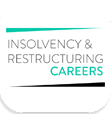If you are considering a career as an insolvency practitioner, you may be wondering which path to take to achieve this goal.
Many insolvency practitioners come from a legal or accountancy background, however, this is not a requirement. If you know insolvency is the industry you want to be in, you can start your career without any prior qualifications or experience to your name and receive all the training you will need in-house at a reputable insolvency firm.
The road to becoming an insolvency practitioner can be a long one, as it will take time to obtain the knowledge, qualifications, and experience you need to gain your insolvency license. However, if you are willing to work hard and start from the bottom, it is possible to progress through the ranks relatively quickly.
Starting out…
While it is technically possible to pass the necessary exams to qualify as an insolvency practitioner without ever working in the industry, this is not a recommended course of action. Without the day-to-day hands on experience of managing active insolvency cases, not only are you likely to find the already tough exams even more challenging but you will then need to be able to source relevant work experience in order to apply for your insolvency license.
For most individuals joining the industry, they will be required to start in a junior role such as Trainee Insolvency Administrator. This will give you great experience of the fundamentals of what is involved across the whole spectrum of formal insolvency processes.
Working alongside more experienced colleagues, your day-to-day duties are likely to include being involved in preparing the required documentation to fulfil the statutory obligations as set out in the Insolvency Act 1986. You will become familiar with liaising with HMRC and other creditors, and gain vital knowledge of how an insolvency case is administered from start to finish.
Depending on the firm you are working for, you may be given the opportunity to sit in on the initial consultations between the insolvency practitioner and the director of the insolvent company. If you are invited to take part in such meetings, you should seize the opportunity. These meetings can be invaluable in understanding the typical types of problems directors face, as well as how the insolvency practitioner approaches giving advice and the considerations taken to decide upon the most appropriate solution going forward.
Examinations: Considering the CPI
When you have mastered the basics of the industry and feel ready to take the next step, you may wish to consider formalising your experience by obtaining an industry-recognised qualification.
The Certificate of Proficiency in Insolvency (CPI) is an introductory qualification which, while it does not give you the license you need to become an insolvency practitioner, is a great way to start your formal qualification journey as it will give you the chance to solidify the foundational knowledge which can be a huge advantage for when the times comes to sit your JIEB exams.
Sitting the CPI is not a necessary pre-requisite of becoming a licensed insolvency practitioner, however, this intermediate step is one many chose to take at this stage in their career.
The CPI consists of a three-hour examination which is set by the Insolvency Practitioners Association (IPA) with the syllabus covering the whole range of formal insolvency procedures, from liquidation and administration to IVAs and bankruptcy, as well as requiring an understanding of the legal and regulatory frameworks which underpin these processes.
Holding CPI status is recognised across the industry as a significant achievement, and can be a great stepping stone in taking your career to the next level.
Gaining your insolvency license: the JIEB exams
Once you have gained ample and varied experience within the insolvency industry, the time will come when you feel ready to sit the JIEB exams in order to achieve your insolvency license and become a licensed insolvency practitioner.
The JIEB exams consist of two papers; one focussed on corporate insolvency, the other personal insolvency. In order to be apply to apply for a full insolvency license, both exams must be passed. If only one exam is taken (or passed) you can apply for a partial license which will allow you to take appointments related to companies or individuals only (depending on which exam has been passed) rather than both.
In order to receive your insolvency license, you also need to be able to demonstrate a minimum of 600 hours of relevant work experience over the prior 3 years. If you have followed the path above, you will have accumulated this naturally during your employment. If, however, you have sat the JIEB without any prior work experience in the industry, you will need to complete these hours before you can apply for a license to practice.
In addition to passing the JIEB and having the requisite hours of relevant work experience, all prospective insolvency practitioners must also be approved as a fit and proper person by the Insolvency Licensing Commission as part of the application process.
Once all qualifying criteria has been met, an individual will be granted their insolvency license making them a licensed insolvency practitioner.
While the road to becoming an insolvency practitioner can be challenging, insolvency does offer a fulfilling career in a stable counter-cyclical industry which is often extremely rewarding.
About the author – Chelsea Williams is an experienced debt help adviser at Scotland Liquidators who specialises in the range of insolvency options available to companies and individuals in Scotland.















